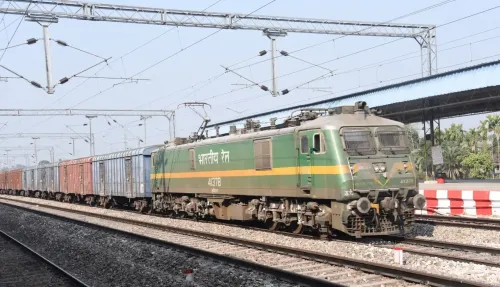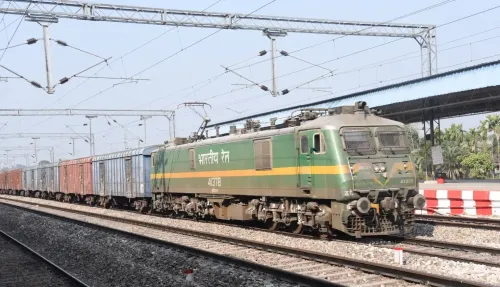Fadnavis Introduces Legislation to Revise Maharashtra GST Act

Nagpur, Dec 17 (NationPress) Chief Minister Devendra Fadnavis on Tuesday introduced a legislative proposal to amend the Maharashtra Goods and Services Tax Act, 2017, aimed at implementing the decisions made by the GST Council and ensuring consistency in the application of the provisions of the Central Goods and Services Act, 2017, alongside the state Act.
The proposed legislation suggests making the Input Service Distributor procedure mandatory for distributing Input Tax Credit related to input services acquired by the head office from a third party, applicable to both the head office and branch offices, or exclusively to certain branch offices. Furthermore, the bill indicates that no state tax will be imposed on un-denatured extra-neutral alcohol or rectified spirit used for producing alcoholic beverages.
Additionally, it seeks to grant the government authority to regularize instances of non-levy or under-levy of state tax when it is determined that such instances arose from common practice. The bill also aims to clarify the timing of service supply in scenarios where the recipient of services is required to issue an invoice under reverse charge supplies.
Per the proposed bill, registered individuals can claim input tax credit in any returns submitted for the financial years 2017-18, 2018-19, 2019-20, and 2020-21, provided they are filed by November 13, 2021.
Moreover, the bill seeks to empower the state government to outline conditions and limitations for revoking registration cancellations. It mandates the electronic submission of monthly returns by registered individuals required to deduct tax at source, regardless of whether any deductions were made during that month.
The legislation also aims to introduce section 74A to address instances of tax not paid, underpaid, erroneously refunded, or wrongly availed input tax credit for the financial year 2024-25. Additionally, it proposes reducing the maximum pre-deposit amount for appeals before the Appellate Authority from Rs 25 crore to Rs 20 crore for state tax and grants the state government the power to notify case types to be heard by the Appellate Tribunal.
Furthermore, the bill introduces provisions for the conditional waiver of interest and penalties concerning demand notices for the financial years 2017-18, 2018-19, and 2019-20, excluding those related to erroneous refunds. The government is also empowered to announce the date from which the Authority will no longer accept applications for anti-profiteering cases.









